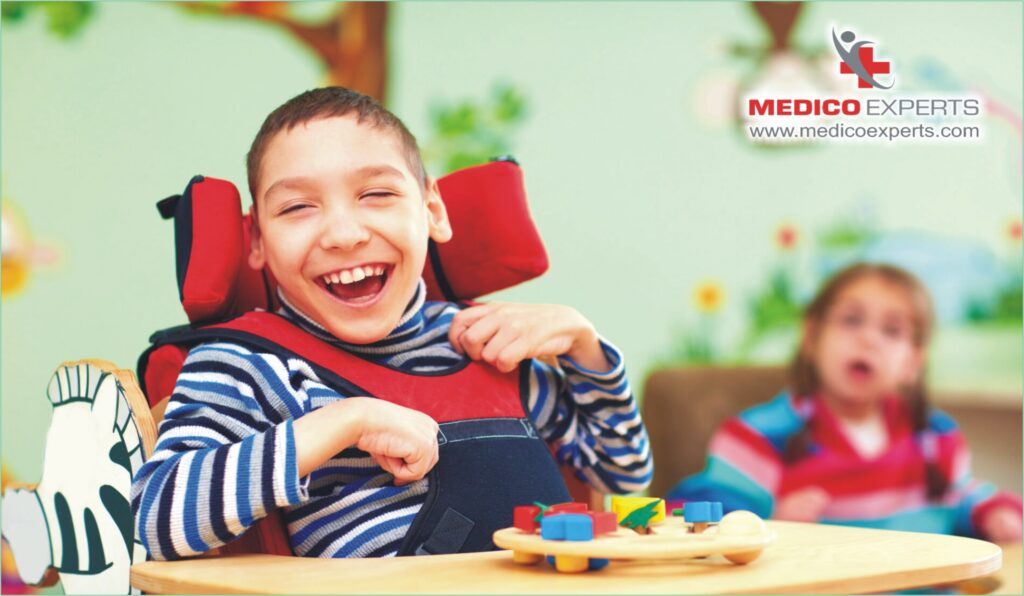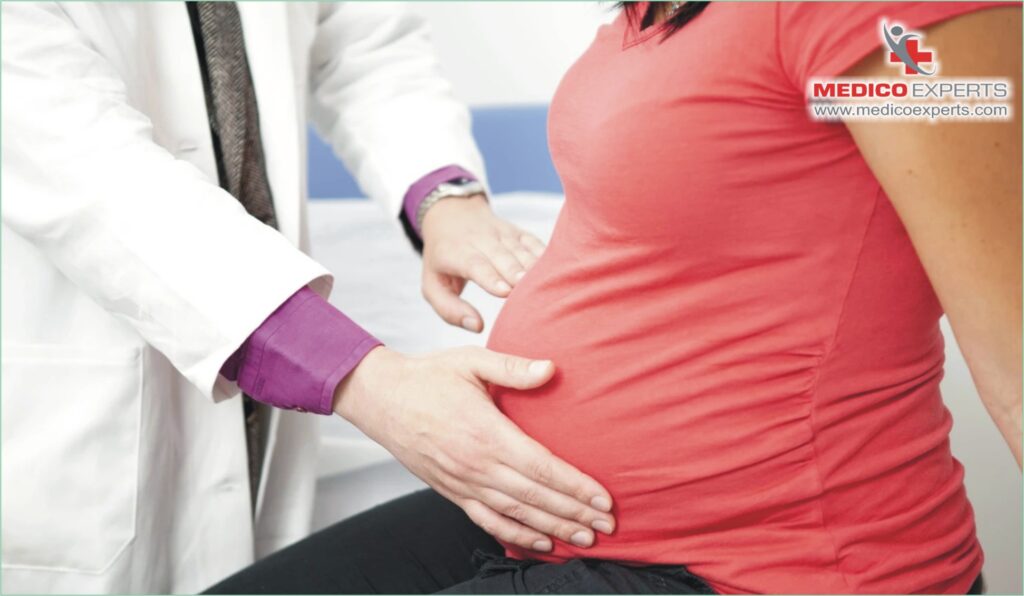Do you know that a routine second-trimester ultrasound can detect the signs of autism during pregnancy?
There are evident signs of autism during pregnancy. Identifying these signs early on not only ensures that your child receives timely treatment but also assists families in making informed decisions about the most suitable courses of action.
Early detection of autism will help you as a parent to explore programs, strategies, and other adjustments for your child’s benefit.
Let’s go deep and learn how autism can be detected during pregnancy and how that will help you give your child a better life.
Key Takeaways
- Early detection of autism indicators during pregnancy allows for better preparedness and timely interventions.
- Nutritional and environmental factors play a significant role in prenatal autism risks.
- Maintaining a healthy lifestyle and staying informed can reduce the likelihood of developmental disorders.
What is Autism?

Autism, or autism spectrum disorder (ASD), is a complex and multifaceted disorder: extended variation in kind and severity, a deficit in social skills, repetitive behaviour, and speech and nonverbal communication.
Autism affects the general population variably; some have difficulties in their social, learning, and communication skills, and those will need special support in their daily activities, while others can be very mild and therefore do not affect them while they keep up in school, and have relatively fewer problems in communication.
Meanwhile, if you want to learn more about Autism, please visit the link: Autism Treatment in India
Why you should learn about the signs of Autism during pregnancy?

Autism, or Autism Spectrum Disorder (ASD), refers to different conditions that are marked by a lack of social skills, repetitive behaviours, and communication challenges.
But detection of autism in the womb can help you offer your child all the support and care they need at an early stage, which in turn can increase their chances to live independently.
Detection of Autism in the Mother’s Womb

According to a study done at the Azrieli National Centre for Autism in Israel, 30% of the fetuses have abnormal kidneys, hearts, and heads in the mother’s womb which can be detected by an ultrasound.
These congenital defects put the fetus at a greater risk of developing autism than the natural fetuses.
Moreover, two US studies have claimed that if the insula (an area in the brain deep in the cerebral cortex) and amygdala (the region of the brain related to emotional processes) in the brain are enlarged in the early months of pregnancy, in all probability, the child is autistic.
The only thing that needs to be done is a routine prenatal ultrasound in the second trimester of the pregnancy. This will help find the early signs of ASD.
What happens inside the Mother’s Womb? – Reasons for Autism

If the very young embryo or the blastocyst (a bunch of dividing cells made by a fertilized egg) does not properly attach itself to the uterine wall of the mother, then it cannot absorb the essential nutrients for its growth from the mother. This also leads to autism and is associated with preterm labor and low birth weight.
The immune system of the mother and the fetus also plays an important role in triggering this developmental disability.
If the mother has an overactive immune system or a virus has infected her during the pregnancy, then the inflammatory molecules called cytokines may be directed toward the fetus making it more prone to develop autism.
Also, this developmental disability happens when mothers with an autistic child may have high C-reactive protein ( a protein that indicates infection and inflammation) in their blood. Diabetes, high blood pressure, and the heavy weight of the mother may also trigger the stress and the inflammatory pathways related to autism in the child.
What is the Nutritional Deficiency of the Pregnant Mother that can lead to Autism?

Folic acid, iron, multivitamins, and omega-3 fatty acids are essential for a pregnant mother.
Folic acid helps in the formation of the neural tube ( brain and spine) in the fetus and its deficiency has been linked with autism.
Iron helps in maintaining a level of dopamine neurotransmitters and can check the development of autism. Vitamin D is a neuro-steroid that can help in neurodevelopment and musculoskeletal development.
The deficiency of these essential nutrients may lead to autism in unborn children.
How can I safeguard my child from Autism risks during pregnancy?

Many reasons can cause autism in the child during its developmental month inside the mother’s womb. You can safeguard your unborn child from autism by doing these things:
- If you are taking drugs for epilepsy and depression, consult your doctor and if they ask you to stop them or reduce the dosage immediately, do accordingly.
- If you are exposed to bisphenol (a chemical compound mainly used in the production of various plastics) or polychlorinated (a group of man-made chemicals) compounds, then you should stop exposing yourself to them during pregnancy.
- One of the main reasons for autism can be gestational diabetes. You should get help from your doctor to manage gestational diabetes and should not ignore it as a common pregnancy issue.
- Listen to your doctor and take enough rest to avoid any kind of stress and fatigue during pregnancy.
- Include foods rich in vitamins, iron, and folate in your diet, and also remember to take supplements. But take them after consulting your doctor.
- Experts have found that the best age to become a mother is between 21-35 years. Plan your baby accordingly to reduce the chances of complications like low birth weight and preterm labor along with abnormalities like autism.
What are Autism symptoms outside the womb or after birth?

There are few prominent symptoms of autistic babies. The following points describe the common features of autism in babies.
1. Lack of eye contact
Normal babies make eye contact with individuals as early as 2 months old. If your child is not looking at you properly, then you may consider it a developmental problem.
2. Lack of gestures or pointing out
Your child will make gestures or point out something when growing their communication skills. They do it to increase their attention skills. Autistic children have less ability to point to something or make gestures.
3. Very little response when their names are called
Autistic children do not respond to their names, even at the age of 9 months. Parents should be aware of this symptom and note this developmental delay in their child.
4. Delayed Development of Speech
At 16 months of age, children try to speak one-word phrases whereas, by 24 months of age, they start telling 2 words and phrases. The understanding of speech starts earlier, in autistic children, speech development sometimes becomes a challenge.
5. Lack of facial expression
Autistic children also have emotions but they may lack facial expression.
What is Autism Treatment after birth?

One of the several approaches to help your child defeat autism is to get engaged with them. You can do that in the following ways
1. Imitate their actions
If your child is shaking a rope, you also shake a rope along with them to reassure them that you are with them. This is one of the ways to tell your child that they are not alone. This will also help them to develop the neural circuits associated with imitating.
2. Display of excitement
If your child is playing with an electronic toy, and it produces music with certain actions, then show your excitement to your child once they get excited hearing the music. Your action shows them that you are paying attention to his activities.
3. Allow your child to do what they want
Get engaged with your child. Do not disturb their concentration and allow them to play what they want. If your child is playing with building blocks, don’t make them read books.
The most difficult thing is to encourage your child to do something. Encourage them to play, and they will slowly start playing with you. Give them as much company as you can.
Takeaway

If you know that your child may develop autism during pregnancy, you can take all necessary precautions and decide on the right steps to tackle this developmental disability.
Knowledge of the causes of autism and prevention strategies can go a long way to help your child live a normal and self-reliant life.
MedicoExperts can help you connect with a team of experts to understand autism better and to provide the right support and care that your child needs to cope with the challenges thrown at them by this condition.
Frequently Asked Questions (FAQs):
Q1. What are signs of autism in the womb?
A: A routine prenatal ultrasound can help you find the signs of autism during pregnancy. Researchers have found that there are anomalies in the heart, kidneys, and head in 30% of fetuses who later develop ASD.
Q2. What trimester does autism occur?
A: It can be detected during the second trimester.
Q3. How can I reduce the chances of autism in my child?
A: Ensure a balanced diet, manage existing health conditions, avoid exposure to harmful chemicals, and maintain a healthy and stress-free pregnancy routine.
Q4. What increases the risk of autism during pregnancy?
Nutritional deficiencies, maternal infections, gestational diabetes, and exposure to environmental toxins can all contribute to an increased risk of autism.
References
https://www.sciencedaily.com/releases/2022/02/220209112107.htm#:~:text=FULL%20STORY-,A%20routine%20prenatal%20ultrasound%20in%20the%20second%20trimester%20can%20identify,Soroka%20Medical%20Center%20has%20found.
https://www.ncbi.nlm.nih.gov/pmc/articles/PMC6195454/
https://www.webmd.com/drugs/2/drug-18699-5126/iron-vit-c-vit-b12-folic-acid-oral/iron-vitamin-c-vitamin-b12-folic-acid-oral/details#:~:text=Foods%20rich%20in%20iron%20include,as%20soon%20as%20you%20remember.
https://www.ncbi.nlm.nih.gov/pmc/articles/PMC9053216/
https://www.nature.com/articles/s41398-020-01096-7
https://www.niehs.nih.gov/health/topics/agents/sya-bpa
https://www.ncbi.nlm.nih.gov/pmc/articles/PMC4110845/
https://www.ncbi.nlm.nih.gov/pmc/articles/PMC9234972/#:~:text=We%20reviewed%2036%20studies%20examining,having%20a%20child%20with%20ASD.
https://publichealth.jhu.edu/2016/obesity-diabetes-in-mom-increases-risk-of-autism-in-child#:~:text=Those%20children%20with%20mothers%20who,%E2%80%9D%20says%20co%2Dauthor%20M.
https://publichealth.jhu.edu/2016/obesity-diabetes-in-mom-increases-risk-of-autism-in-child#:~:text=Those%20children%20with%20mothers%20who,%E2%80%9D%20says%20co%2Dauthor%20M.
https://www.ncbi.nlm.nih.gov/pmc/articles/PMC10311578/
https://www.ibsafoundation.org/en/blog/symptoms-autism-evident-during-pregnancy
https://www.sciencedaily.com/releases/2022/02/220209112107.htm
https://www.nidcd.nih.gov/health/autism-spectrum-disorder-communication-problems-children
Relevant Articles For You
As a parent of an autistic child, you always have that constant question in your mind: Is autism curable? Will my child be normal? As per…..Read More
Are you aware of the fact that 40% of autistic children do not have the ability to speak? Autism disorder has…..Read More
Recommendations To Understand Different Treatments
As a parent of an autistic child, your dream is to help your child get rid of hyperactivity and overcome the lack of…..Read More
Startling statistics reveal that only around 16% of adults with autism are employed full-time. But do you know that they can live an…..Read More
Are you worried that your child’s autism symptoms have not improved despite your best efforts? You may be annoyed by the…..Read More
It is an unbearable pain to see a 3-year-old child not making eye contact with you or not smiling back at you. Like other…..Read More
Clinically and Medically Reviewed by MedicoExperts Editorial & Clinical Review Board
Medical Disclaimer: This article is for informational purposes only and is not intended as a substitute for medical advice. Always consult your healthcare provider for personalized recommendations and guidance.



